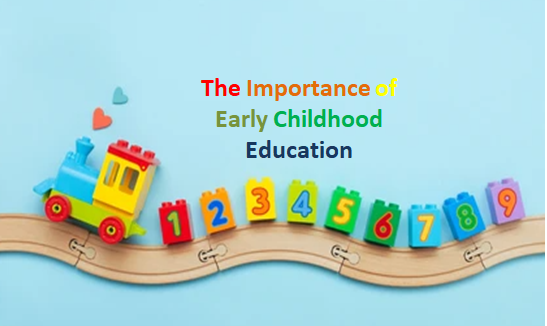Introduction Early childhood education
Early childhood education is the period of learning that occurs in the early years of a child’s life, typically from birth to age eight. This critical stage of development lays the foundation for a child’s future learning, behavior, and world of overall well-being. Research consistently shows that high-quality early childhood education has a profound impact on a child’s cognitive, social, emotional, and physical development.
As society recognizes the importance of these early years ECE There is an increasing focus on this, which is one of the most important and fundamental areas of policing.
Why Early Childhood Education Matters
Cognitive development.
The early years of life are marked by rapid brain development. During this period the brain is particularly receptive to stimuli and the quality of early education trades heavily in shaping a child’s cognitive abilities. Children who attend preschool or participate in early learning programs are more likely to develop strong. language reasoning and problem-solving skills.
Early learning opportunities expose children to a wide range of vocabulary and concepts, which can be critical to their future academic success. Studies show that children who participate in early learning programs excel in reading, math and other subjects later in life.
Social and Emotional Development
The early childhood years are also a time when children learn how to navigate social interactions and regulate emotions. Early education settings provide children with the opportunity to develop essential social skills, such as empathy, empathy, and self-regulation. Skills that are the foundation of much success in both school and life.
Children who participate in quality early childhood programs also demonstrate better emotional resilience, which greatly helps them cope with problems and setbacks. The social environment of early childhood education encourages children to develop positive relationships with peers and adults, fostering a sense of trust and belonging.
School Readiness and Academic Success
One of the most important outcomes of early childhood education is increased school readiness. Children who attend high-quality preschool programs. are better prepared for kindergarten, with improved skills in literacy, numeracy, and critical thinking. An early foundation that sets the stage for continued academic success while reducing the risk of future academic gaps.
Additionally, early childhood education can help close the achievement gap for children from low-income families. Society can work to level the playing field by providing these children with access to quality early education opportunities. And ensure that every child has the opportunity to succeed academically.

Lifetime benefits Early childhood education
The benefits of early childhood education extend far beyond the early years of life. Studies show that children who receive a strong early education are more likely to graduate from school and enjoy higher-paying jobs as adults. And are less likely to experience behavioral problems or engage in criminal activity.
The long-term social benefits of investing in early childhood education are significant. Research shows that for every dollar invested in early childhood programs, society receives a return in the form of reduced crime, lower health care costs, and a more productive workforce.
The Role of Teachers and Caregivers in Early Childhood Education
Teachers and caregivers play a role in a child’s development in the early years. The quality of instruction and care children receive during these early years can significantly affect the pace of their development. Effective early childhood teachers are not just caregivers. They are skilled facilitators who create a nurturing, stimulating environment that promotes learning and growth.
Professional development and ongoing training for early childhood educators. is essential to ensure they are equipped with the knowledge and tools to support children’s learning. A strong relationship between educators and families is also essential, as it creates a partnership that enriches a child’s learning experience.
Conclusion
Early childhood education is more than just a form of schooling. It is an important investment in the future. By giving young children the opportunity to learn and read in a supportive structured environment, we are setting the stage for their success in school and beyond. The benefits of early childhood education ripple through society, creating a more equitable
And prosperous future for everyone. As we recognize the power of early learning and continue to invest in the success of future generations.
In short, early childhood education is not just a luxury; it is a necessity that underpins lifelong learning, social success, and overall well-being.






Leave a Reply